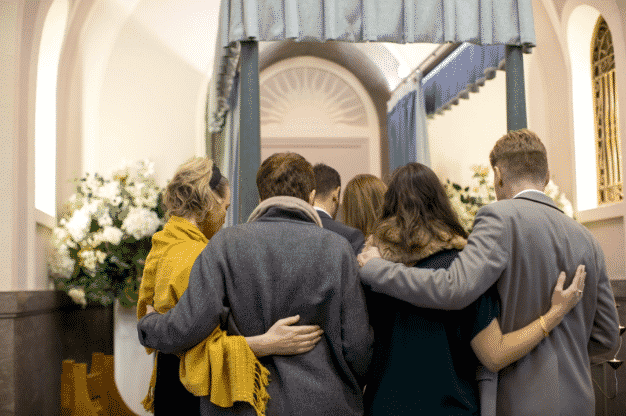It can be a very emotional and stressful time when a loved one dies. The last thing you might want to think about is how to arrange a funeral. If you know what to do, it might make the process a little easier.
In this post, you’ll find a step-by-step guide, some advice on getting started, choosing a funeral director, finding help with the cost, planning a memorial, and more.
Making Plans
Before this step can get underway you’ve first got to determine a few things:
- Has your loved one left a Will and does it contain any funeral instructions?
- Is there savings to pay for the funeral or a funeral plan in place?
- If not, how do you plan to pay for the funeral?
If there are no instructions in the Will, your loved one might have talked it through with someone close. Speak with family members and close friends about planning the funeral. Some of them might be willing to help, while others may prefer not to get involved. If you’ve got some support, arranging a funeral will feel less overwhelming.
There is also the option of hiring a funeral director. They will help with the organisation and guide you through the process step-by-step.
Choosing a Funeral Director
If you don’t want to arrange the funeral yourself there is the option of leaving the arrangements to a funeral director. They’ll take care of the deceased, the proceedings, and the organisation of any parties. In addition, they’ll be able to give general advice and support.
If your loved one had a funeral plan or Will, they may have already chosen the funeral director.
Burial vs Cremation
The most common types of funeral are cremations, burials, and direct cremations. Prices vary, but the most affordable is usually direct cremation. The most expensive will be burial.
If your loved one specified a type of service in their Will or Funeral Plan, you might be worried about the cost and whether you can afford it. Don’t worry. Choose one that suits your budget instead.
The Cost of a Funeral
In 2021, the average cost of a funeral in the UK was a shade over £4,000. This is quite expensive and doesn’t take into account extras such as transport, flowers, and a memorial. The basic funeral costs should cover:
- Funeral director’s fees
- Doctor’s fees
- Clergy or officiate fees
- The coffin
Who Pays?
If your loved one took out a Funeral Plan, the cost of the funeral service may be covered. On the other hand, they might have put aside some money from their estate to cover the cost. Another possibility is that there is a life insurance policy in place which could help cover the cost of the funeral.
Should none of the above apply, it is usually a relative or friend that pays for the funeral. In such cases, they might be able to get the costs back from the estate, if there’s enough to cover it.
Getting Financial Help
Financial help is available for funeral costs:
- The funeral director may be able to give advice or have options or accept benefits
- Charities like The Bereavement Trust might be able to help
- You might be able to claim government funeral support
- Your local council may also be able to help with a Public Health Funeral
Arranging the Funeral Service
Before you make any firm arrangements, first check whether your loved one has any wishes. For example, they might want people to dress in colourful clothes or sing certain songs.
Type of Funeral Service
There are a range of different funeral services to choose from:
- Traditional church ceremony
- Traditional cremation
- Direct cremation
- Green and woodland funeral
- Humanist and civic funeral
- Burial at sea
If you want to make the service more personal, you can change may aspects, for example:
- The music to go out to
- Funeral arrangements and flowers
- Write a personal eulogy
- Poems for the funeral
Planning the Wake or Memorial Celebration
After the funeral, it is usual for there to be a reception or a wake. This is an opportunity for friends and family to come together and mourn the passing or celebrate the life of their loved one. This event can be held almost anywhere. It could be in your home, village hall, local pub, hotel, or social club.
Final Thoughts
The planning of a funeral might not be something you want to think about, especially if it’s for yourself. Nevertheless, planning ahead can ease the burden for those you leave behind at such a difficult time.
At the very least, you could sit down with close family and talk about what you want to happen when you pass away. It’s a difficult subject to bring up in conversation, but your loved ones will understand that it’s something that has to be done.







